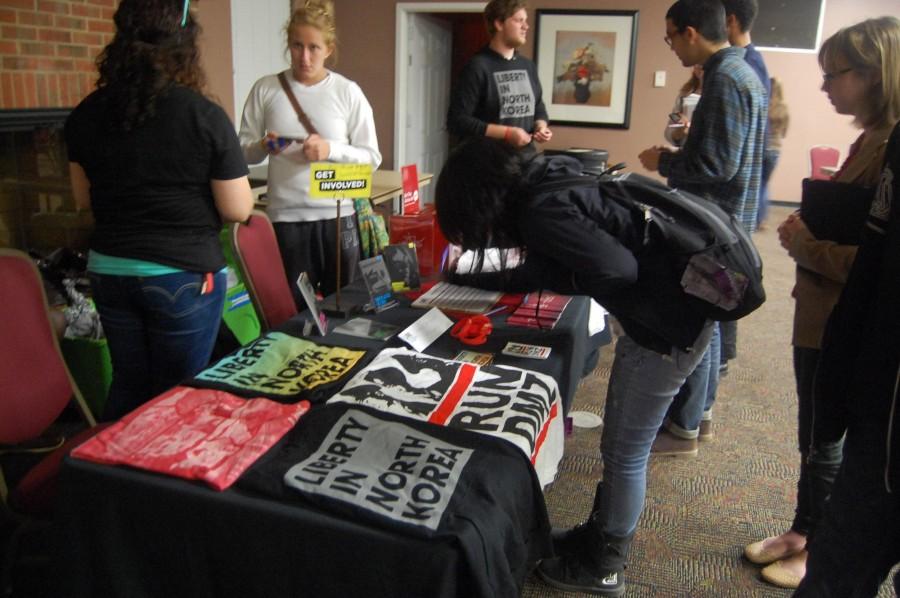“North Korea is the most politically oppressive regime in all history,” said Liberty in North Korea President Hannah Song in the documentary “Hiding the Final Cut.”
LiNK, a group whose mission is to raise awareness about the North Korea human rights crisis, came to Guilford College on Oct. 25 to help spread the word about the struggle and hardships that North Korean refugees face.
LiNK representatives presented “Hiding the Final Cut”, which explained the living conditions in North Korea, arguing that many North Koreans are forced to endure oppression.
There are three legs that allow North Korea to uphold such a rigid and oppressive rule, according to David Hawk, author of numerous books about human rights in North Korea. The government maintains complete control of the population, employs the use of citizenry surveillance, and enacts sure, swift and severe punishments for what the government considers infractions.
According to the documentary, North Korea has six different functioning political prisoner camps that house up to 200,000 inmates. The government uses a system of collective punishment that can last through three generations of a family; essentially a citizen’s children’s children would be punished even if the crime was just a slight infraction.
One refugee in the documentary said he fled North Korea because, “You only live on this earth once and I wanted to live it like a human being.”
There are currently over 100,000 North Korean refugees; governmental policies, which many believe are both harsh and severe, prompt many people to flee the country, but even the escape comes laden with risks.
The border between North and South Korea is the most heavily fortified border in the entire world, making escape in that direction extremely difficult.
Instead, immigrants flee through China, but, according to the film, the Chinese government refuses to accept them as refugees. China calls them economic migrants so that they can immediately deport refugees back to North Korea. Even if a refugee makes it to China, they must stay in hiding until they can flee to a safe country.
“I didn’t know how much the refugees have to go through,” said junior Becca Mark. “I didn’t realize that once they get out of North Korea there are still so many obstacles to overcome.”
LiNK’s purpose is to help refugees to safety and establish themselves in their new lives. The organization is also trying to start enacting change to improve human rights for North Koreans.
In an effort to raise awareness, LiNK travels across America to inform people about human rights violations in North Korea and tell them how they can help.
LiNK believes that everyone has the chance to help.
“The first and most important thing you can do is just to have an open heart,” said LiNK representative Zane Martin. “We all have problems that are important, but it’s easy to forget about others. If you simply keep an open heart, then those problems will not blind you to the rest of the world.”

